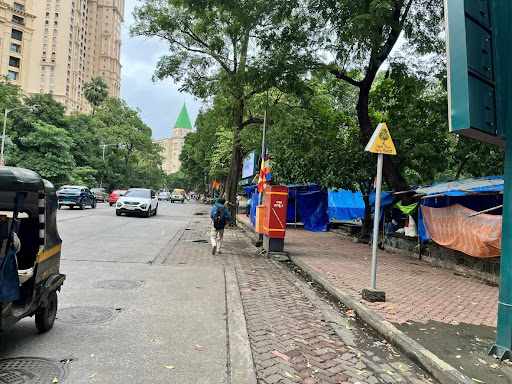
NIKITA JAIN
I’ve reported stories on numerous demolitions in India (here and here), but it never gets easier to witness innocent people, trying to live their lives, trying to find expression for their dreams, lose everything in an instant.
A house is, arguably, the highest expression of the Indian dream, a place to call home. More Indians are homeless than any other people in the world, and because it is so difficult to build a home, it is so much more coveted, and so much more devastating when it is lost.
To report the latest story of loss and desolation, I travelled through the teeming streets of India’s richest city, Mumbai, past speeding commuter trains, overloaded buses, rickety slums and high-rise buildings soaring into an overcast monsoon sky overlooking the Arabian Sea. The city’s famous contrasts were entirely in evidence when I reached the northeastern suburb of Powai, site of the latest demolitions.
My first impression was amazement. At first glance, Powai looks like it could be in a developed country: a forest of high-rises, malls and cafes, dominated by a neighbourhood called Hiranandani Gardens, where thousands of Mumbai’s richest people stay.
Then I saw the reality that we Indians usually ignore—the homeless and distraught at their doorstep.
Not a few metres from Hiranandani Gardens, on the pavements outside, were rows of tents, home now to about 3,000 who once lived in small, brick homes they transformed from dream to reality over the years with sweat and savings.
From sack-cloth they began and to tents they were returned, many three decades after they first got here and made homes in an area that was once scrub jungle and forest.
I saw families sitting outside their tents, toddlers running on the road, and women coming back from their daily wage work—as labourers, as cooks and maids in Hiranandani Gardens. Behind the tents was where their home used to be, the colony of Jai Bhim Nagar or JBN.
I stopped a few women wearing yellow-and-green sarees adorned with light jewellery. They were only too willing to talk, invisible as their condition was to the officials closely aligned with the builder and to the media, to whom it was largely a case of another-day-another-demolition.
Land ownership is a complex and murky issue in a city with some of the world’s highest real-estate prices. To be sure, many of JBN’s people were technically squatters, but the builder himself came to build the glass-and-concrete sprawl of Hiranandani Gardens after promising to build low-cost housing. In addition, there were court cases and other government decisions that were meant to protect the constitutional right to housing, especially of disadvantaged communities, like those at JBN, almost all of them Dalits.
On 6 June 2024, the Brihanmumbai Municipal Corporation (BMC), aided by local police, demolished hundreds of houses leaving at least 700 families homeless.
“This is injustice,” Laxmi Powar, 32, told me. “Just because we are poor, they think they can do anything with us? If that is the case, why not tell us that this country is not for the poor and the marginalised?”
Powar, 32, had lived in JBN for nearly two decades and was a maid in one of Hiranandani’s towers. She pointed to her children. “They play and sleep on the road now,” she said.
As Powar was narrating her ordeal, an older woman listening to our conversation joined in.

With great calm, Shantabai Annapowar, 60, described the violence the police inflicted on her and others that day. She was also arrested with many others and spent eight days in jail.
It was when after a local MLA intervened that the people of JBN were released.
When I reached to Hiranandani Group for comments, there was silence for days. “No comments,” they sent me a text message in the end.
These assignments are not just disturbing but humbling. They make me aware of my privileges. They make me aware that I am not likely to lose my home, and they make me very aware how easy it is for those of certain classes, castes and religions to lose theirs.
The anguish for JBN’s people is particularly intense because they live—if you can call it that; existing would be more appropriate—right outside the site of what was once their home. Their situation is made worse by the realisation that the law will not help them, nor will the Supreme Court’s poetic observations about the loss of a home.
On 13 November 2024, just over four months after the trauma of JBN, the Supreme Court, quoting the Hindi poet and songwriter Pradeep, had this to say about demolitions:
"अपना घर हो, अपना आंगन हो, इस ख्वाब मेंहर कोई जीता है। इंसान के दिल की येचाहत है, दक एक घर का सपना कभी न छू टे।" (To have one’s own home, one’s own courtyard—this dream lives in every heart. It’s a longing that never fades, to never lose the dream of a home.)
“A house,” Justice B R Gavai said, “is an embodiment of the collective hopes of a family or individuals’ stability and security.”
To the people of JBN, to the more than 700,000 who have lost homes in demolitions over the past year or so, those dreams and hopes were realised and lost, with no consequences for those who ended them.
Read Nikita Jain’s full story here.
Also Read:


















.jpeg)

Write a comment ...